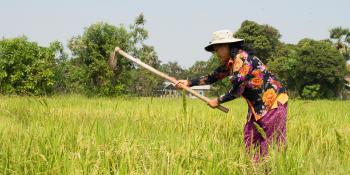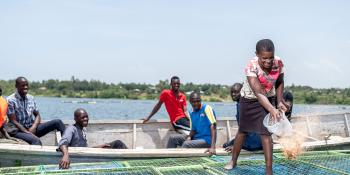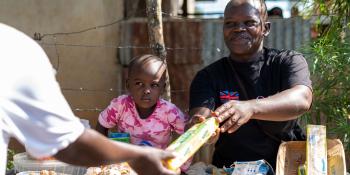In Kamachumu, a small town in northwest Tanzania, farmer Abdul has learned to grow crops that are better for his family and for the planet.
Three years ago, Abdul Majid Emmanuel, 58, couldn’t grow enough food to feed his family of seven children and four grandchildren on his small plot of land.
“I’d lost confidence in my farming ability,” says Abdul, who at the time grew no vegetables, only maize and beans. VSO volunteers trained Abdul how to make the most of his land and to farm in accordance with nature, without harsh chemicals or pesticides.
Now, Abdul’s harvest includes cabbages, carrots, spinach, aubergine, watermelon and amaranth. This variety means Abdul is less financially vulnerable if one crop doesn’t flourish, and a diverse range of plants has been shown to keep the soil rich in nutrients and can improve biodiversity.
“With this range of fruit and vegetables, my family is now getting a balanced diet and our living standards have improved.”
Using manure as an environmentally friendly fertiliser, Abdul’s maize harvests have ballooned from 100kg in 2018 to 600kg in 2020, and with the extra money, he is able to save for the things that matter.
“My family is happy. Now I can support my children’s education with the profits I make from farming.”

Right to food
Millions of people are struggling without a reliable source of food and income to support themselves and their families.

Youth empowerment, green jobs and decent work
Supporting young women, men and informal workers networks to transition to green decent jobs and resilient livelihoods.

Women’s empowerment, control over incomes and right to food
Promoting women’s right to adequate food, women's control over their incomes and developing climate resilient agriculture.
